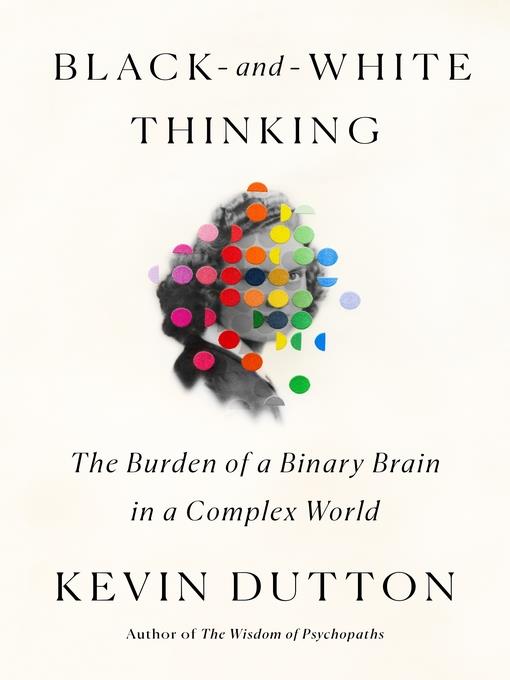
Black-and-White Thinking
The Burden of a Binary Brain in a Complex World
کتاب های مرتبط
- اطلاعات
- نقد و بررسی
- دیدگاه کاربران
نقد و بررسی

November 15, 2020
Why do we think in binary terms like "us versus them"? Research psychologist Dutton finds an answer in how our brains have--and haven't--evolved. Intentionally or not, the author, who has spent the last 20 years teaching at Oxford and Cambridge, puts his own spin on Malcolm Gladwell's crowd-pleasing approach to pop psychology: dusting off scientific research, gathering anecdotes, reaching counterintuitive conclusions, and tossing in a dash of self-help. Dutton asserts that millions of years ago, the fight-or-flight response arose in response to perceived threats, and while the world has grown infinitely more complex, we're still "programmed to think in black and white." In order to navigate life, we mentally divide our experiences into manageable categories, giving them handy "frames." Dutton argues that some cognitive "super-frames" are especially important. Along with "fight versus flight," they include "us versus them" and "right versus wrong." This cognitive trinity, he believes, helps to explain a vast range of polarizing events--e.g., Brexit, Trumpism, the rise of the Islamic State group. Those "super-frames" also hold the key to "supersuasion," or "the secret science of getting what you want" from others. Casting a wide net, Dutton makes his case by drawing on research in neuroscience and other fields as well as on interviews with Tony Blair, Olympic gold medalist Sebastian Coe, transgender boxing manager Kellie Maloney, and others. That journalistic approach keeps the book from becoming dauntingly wonky but also serves as a substitute for a more rigorously scientific treatment that might have lent more plausibility to the author's broad arguments and more weight to theories of "supersuasion," which are no more compelling than those in many sales and marketing bestsellers. Gladwell's detractors have often praised his storytelling and deft phrase-turning while faulting his tendency to oversell his theories and cherry-pick his academic studies. In Dutton's book, many readers will find the same virtues and limits. A theory about why people hold either/or views that's more colorful than convincing.
COPYRIGHT(2020) Kirkus Reviews, ALL RIGHTS RESERVED.

























دیدگاه کاربران